Hell’s Kitchen Scribe Kristoffer Diaz on Finding Emotional Truth in Fiction: 'This Is Not the Alicia Keys Story'
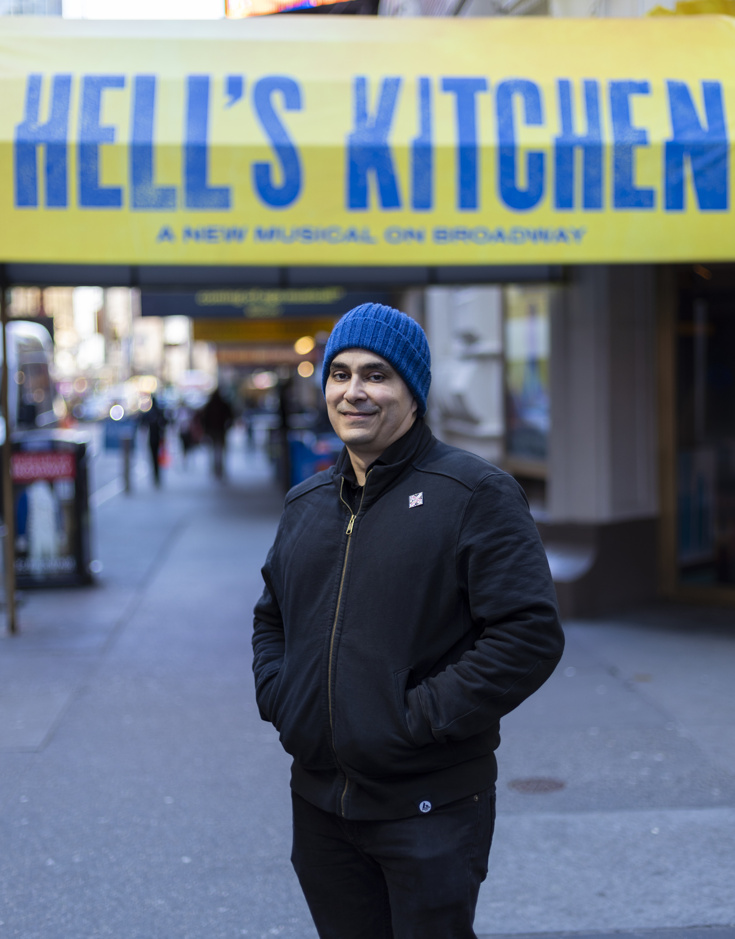
(Photo by Luis Ferrá for Broadway.com)
In most Broadway biomusicals, you'll find some version of this familiar moment: After a long struggle, the title artist steps on stage to deliver a career-defining performance. Take Carole King at Carnegie Hall in Beautiful, Gloria Estefan at the ’91 American Music Awards in On Your Feet! or Michael Jackson at the debut of his Dangerous World Tour in MJ. It’s a reliably triumphant punctuation—and one that fits well into a classic story arc. It’s also something Alicia Keys specifically shied away from when pitching the musical that was bound to become Hell’s Kitchen, now on Broadway at the Shubert Theatre following a fall world premiere at the Public Theater.
“When Alicia came with the idea,” related Kristoffer Diaz, Hell’s Kitchen’s book writer and Keys’ collaborator for the past 12 years, “she said the story can't go any further than standing backstage at her first public performance waiting for the curtain to go up.” No star-making moment. No journey of redemption.
“She knew that there was a lot more career ahead,” said Diaz, a Pulitzer Prize finalist for The Elaborate Entrance of Chad Deity, explaining why a traditional biomusical was always the wrong fit for Keys. “Just from the time we started working on this, she's released I don't know how many albums” (the answer is five, not counting live albums). “And she's going to be making music for another 20, 30 years.”
Instead, Hell’s Kitchen is only loosely inspired by Keys’ upbringing in Midtown's Manhattan Plaza, a federally subsidized apartment complex humming with creativity energy. The show is scored by a combination of new music by Keys and songs from her lauded catalogue. Diaz makes his Broadway debut with this genre-subverting musical, and a dozen years in, still admires his multi-Grammy-winning collaborator’s foresight in removing herself from the spotlight. Because of it, the pair have been able to focus on mining emotional truths, building a world inside a single high-rise and making sure their show is steeped in that ineffable New York City flavor.
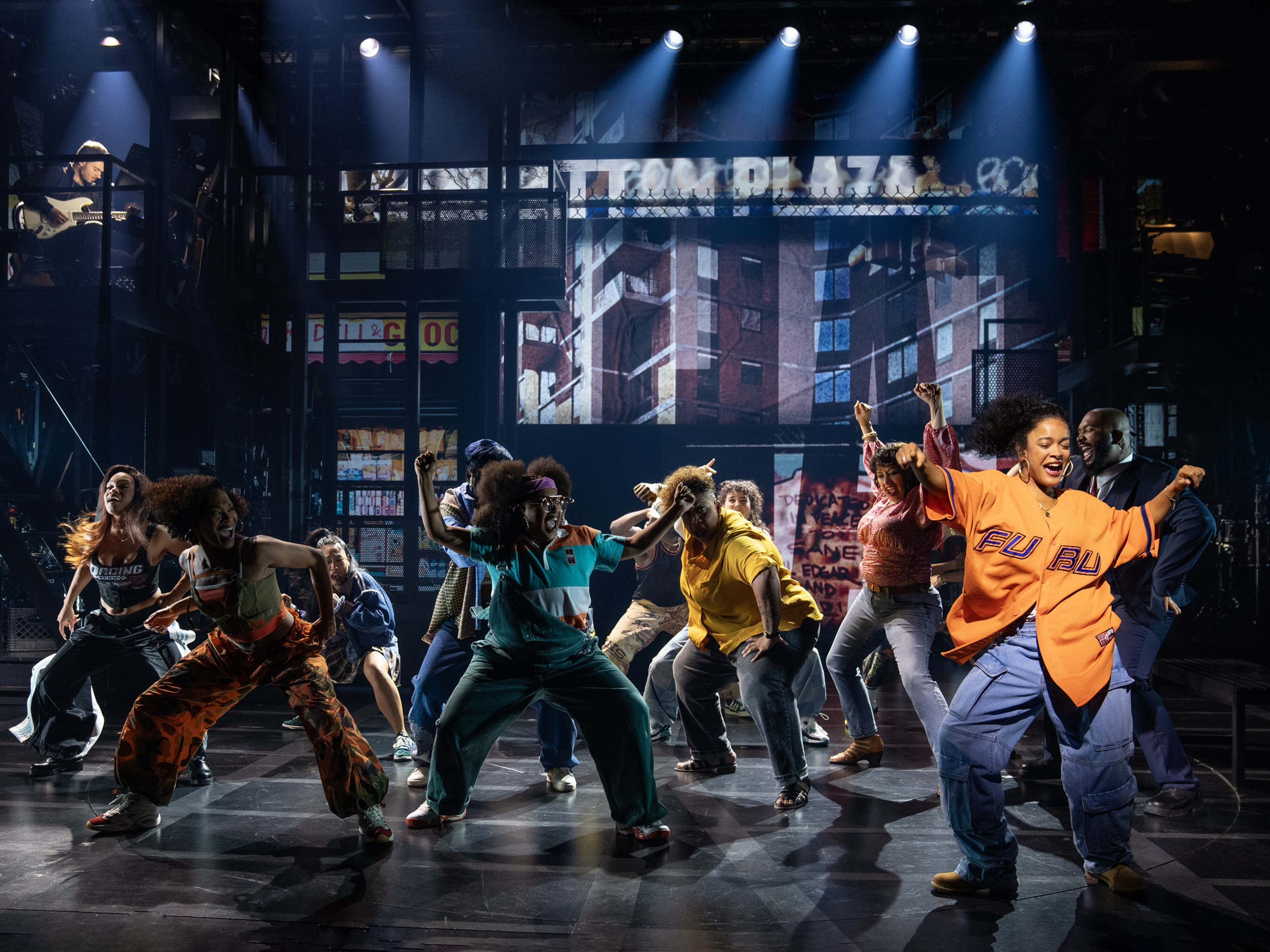
(Photo: Joan Marcus)
Hell’s Kitchen occupies an interesting space between two genres. Audiences know their biomusicals like Beautiful and they know their catalogue musicals like Mamma Mia!, but it’s rare to see a mixture of both. How did Hell’s Kitchen become what it is?
Alicia started asking around for writers to help do a show that would be some of her existing songs and some new songs that she would write for the piece. She knew from the very beginning it wasn't going to be based on her whole life. But she knew that when she was a [teenager] she lived in Manhattan Plaza, an artistic community, with her mom, and she knew that that time period was real rich. But she didn't want to do a show that was this is how Alicia Keys got famous. She wanted to do a show that had some emotional connections to the truths of how she became who she was.
No one’s real life perfectly fits into a model story arc. I would imagine not being beholden to someone’s biography lends itself better to storytelling in a lot of ways.
I think anytime anybody comes to the table to make something new, you're making something new. Hamilton's not the true story of Alexander Hamilton completely, right? But there's so much beauty in all of these shows and all these celebrations of people's careers. While this is not going to be a comprehensive approach to doing that with Alicia, hopefully it does echo some of those big emotions that come up with her. And hopefully we're doing something fun with it—something different.
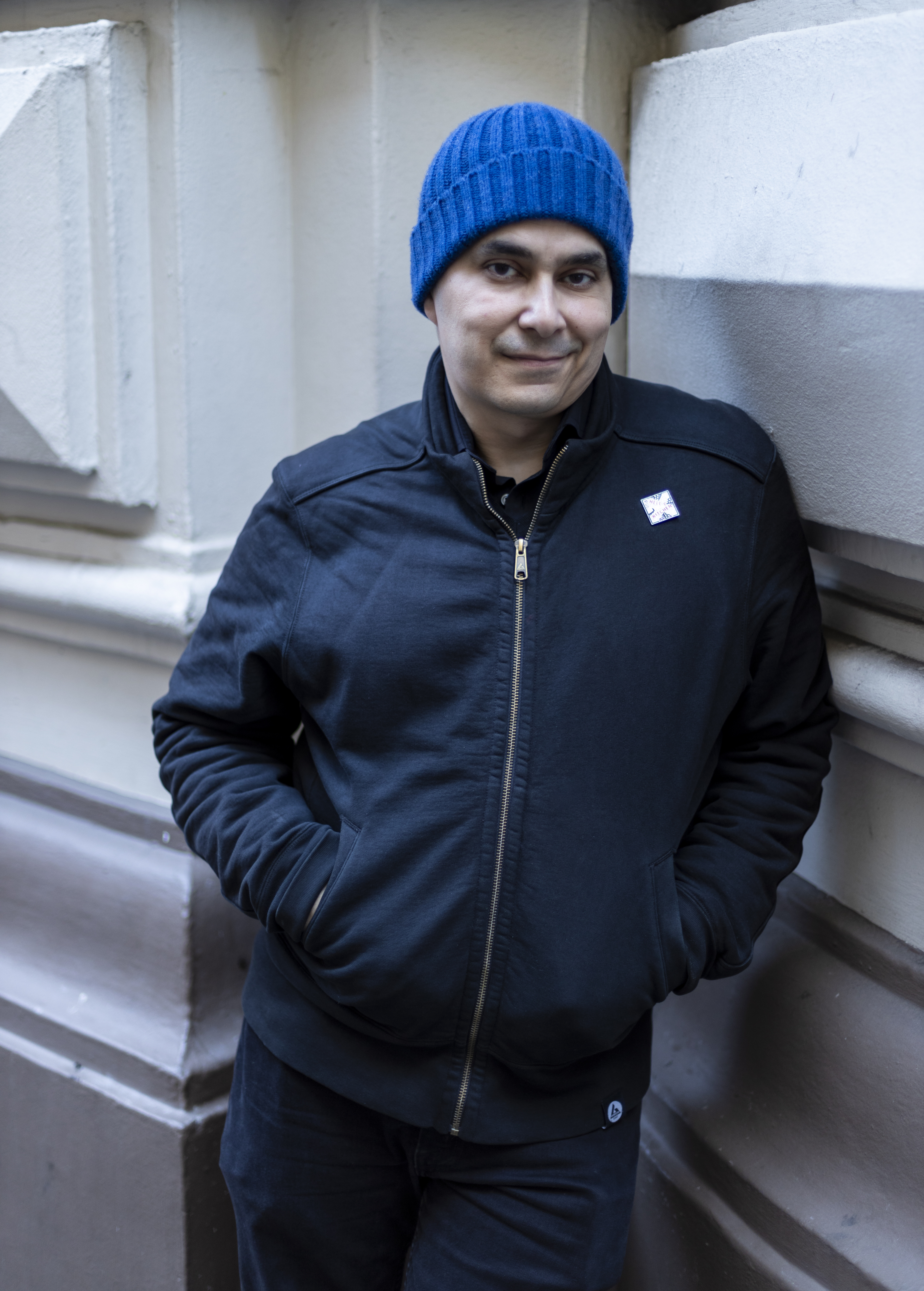
(Photo by Luis Ferrá for Broadway.com)
How did you and Alicia start building this show?
The first three or four years of the process was a lot like this. Just me and her sitting around the table, sitting in her studio. The big difference when you sit at her studio is that there's a wall of—I think at the time it was 14 Grammys. I think she’s got more now.
Did the two of you jell as collaborators?
She and I, from the very beginning, have seen eye to eye on what we're doing—on the time period and on the setting that we're trying to capture. We hit a point where we were like, we feel good about this, but we don't know how to turn this into a musical. [Director] Michael Greif came onto the team at that point and Michael had that ability to really shape what this is. Then at every step of the process, we picked up more collaborators. Whoever's come into the process has been part of that collaborative network, and it's been strong.
"[Keys] wanted to give me the space to create a world that looked like, felt like, sounded like her world, but went off in a whole different set of directions." –Kristoffer Diaz
How much creative freedom did you have? Were there ever times you veered too far from the truth of Alicia’s life?
Not really. At the beginning, I think the show was called If I Ain't Got You, or maybe it was called No One. Part of that decision to switch it up and call it Hell's Kitchen was to make it clear this is not the Alicia Keys story. Once we had that, the parameters were really clear. I didn't sit down for interviews with any of the people that were our initial inspirations for the characters. She wanted to give me the space to create a world that looked like, felt like, sounded like her world, but went off in a whole different set of directions.
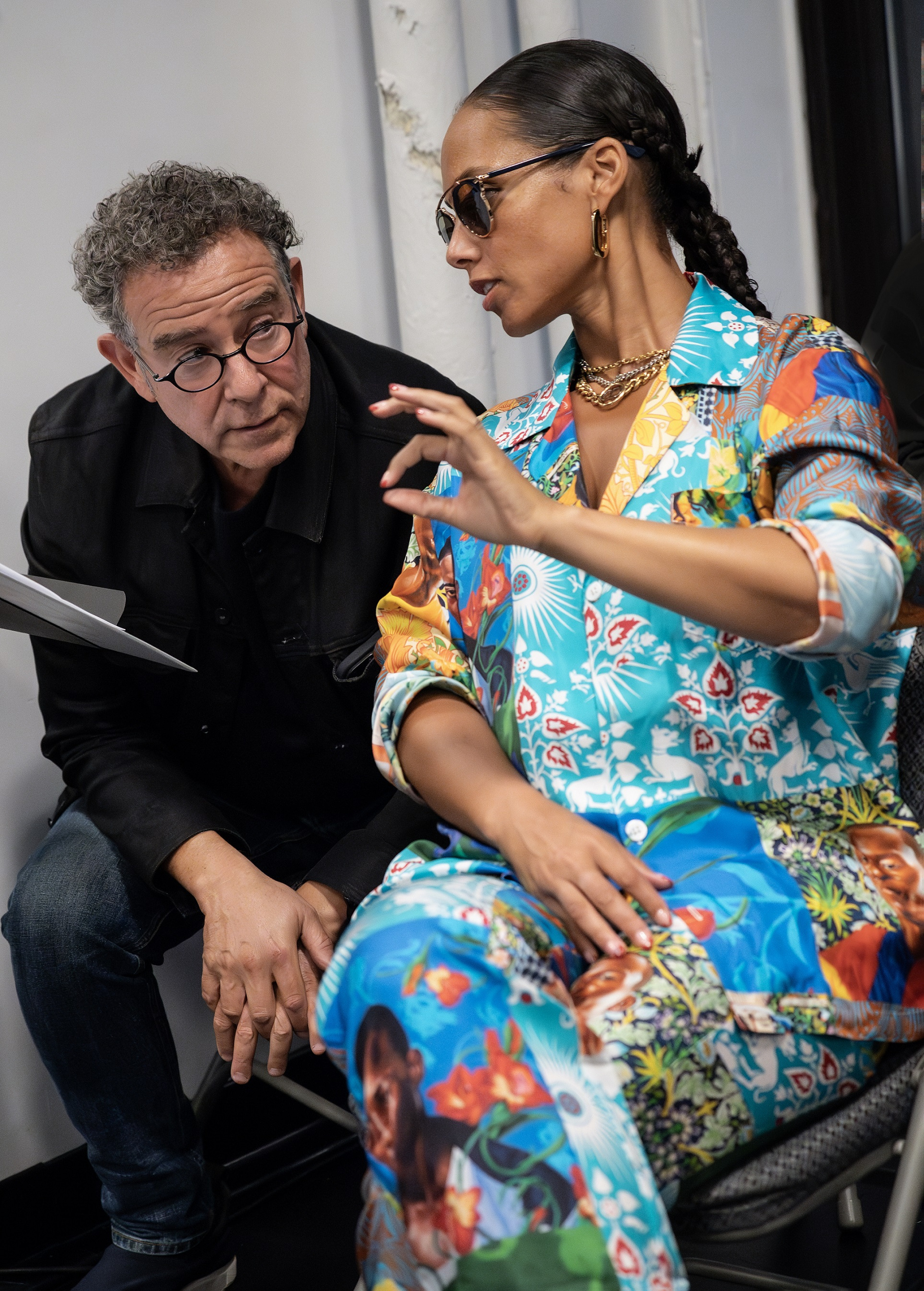
(Photo: Joan Marcus)
Are there pieces of yourself in this musical?
I think that to be a writer, you have to put a little bit of yourself in every character. Ali's 17 years old and she's got a contentious relationship with her parents. At that age, you're always pushing against the boundaries of what they've set up. Her boyfriend Knuck is a little bit older, but he's a young man of color who sings this beautiful song “Gramercy Park” all about how people look at him and see something different than who he actually is. When I was 17 years old, I think I felt that quite a bit. And I'm a parent now. When I got hired, my wife was pregnant with my first son, who's 12 now, which is a crazy thing to see. And I'm a teacher, so Miss Liza Jane, who's the teacher in the piece—you always find a little bit of that emotional truth and then figure out how to filter it through both Alicia's ideas and through this incredible cast that we've got.
The show is also very much about the cultural fabric of New York City. Do you think of the city as its own character?
A lot of people were saying New York is a character. But I think of it less as an individual character and more as just infused into everything. This is a dumb metaphor, but I use the metaphor of tiramisu: You know when you have a good tiramisu and coffee is seeped into everything? I think of New York like that. If you are from the New York area, it becomes a part of you. Even when we were auditioning people, we would have actors walk into the room and they would have beautiful voices, but we were just like, “Something just doesn't sound right in their mouth.” The people who ended up here, they just carry it so deeply. Like Shoshana Bean or Kecia Lewis. You get in a room with them and it's just like, oh yeah, you've put time in here.
"If you are from the New York area, it becomes a part of you." –Kristoffer Diaz
What can you sense in a real New Yorker?
There's some attitude to it. You're always a little tense, your knuckles are always a little bunched up, you got foul language running through your head. And there's also a beautiful spirit, a beautiful sense of community, beautiful awareness of the people around you. So hopefully that's made its way all the way through. And it's certainly all the way through Alicia's music.
What parts of Alicia Keys as a person do you feel you captured in Hell's Kitchen?
I hope that she thinks that the overall piece is true to the music that she's created and the worldview that she has. Each character in the show was really modeled on a major musical influence for her, whether it was Nina Simone, or Sammy Davis Jr., or groups like TLC and SWV. And it's not trying to recreate those things, but connecting those musical styles to the people that impacted her life. All of us have people around us who have made us who we are and led us into great, joyful moments. This character goes through a lot of difficult stuff over the course of the play, and ultimately, we try to be celebrating joyfulness—particularly for a young woman, particularly for a person of color. I don't know how many times I've seen that on Broadway.
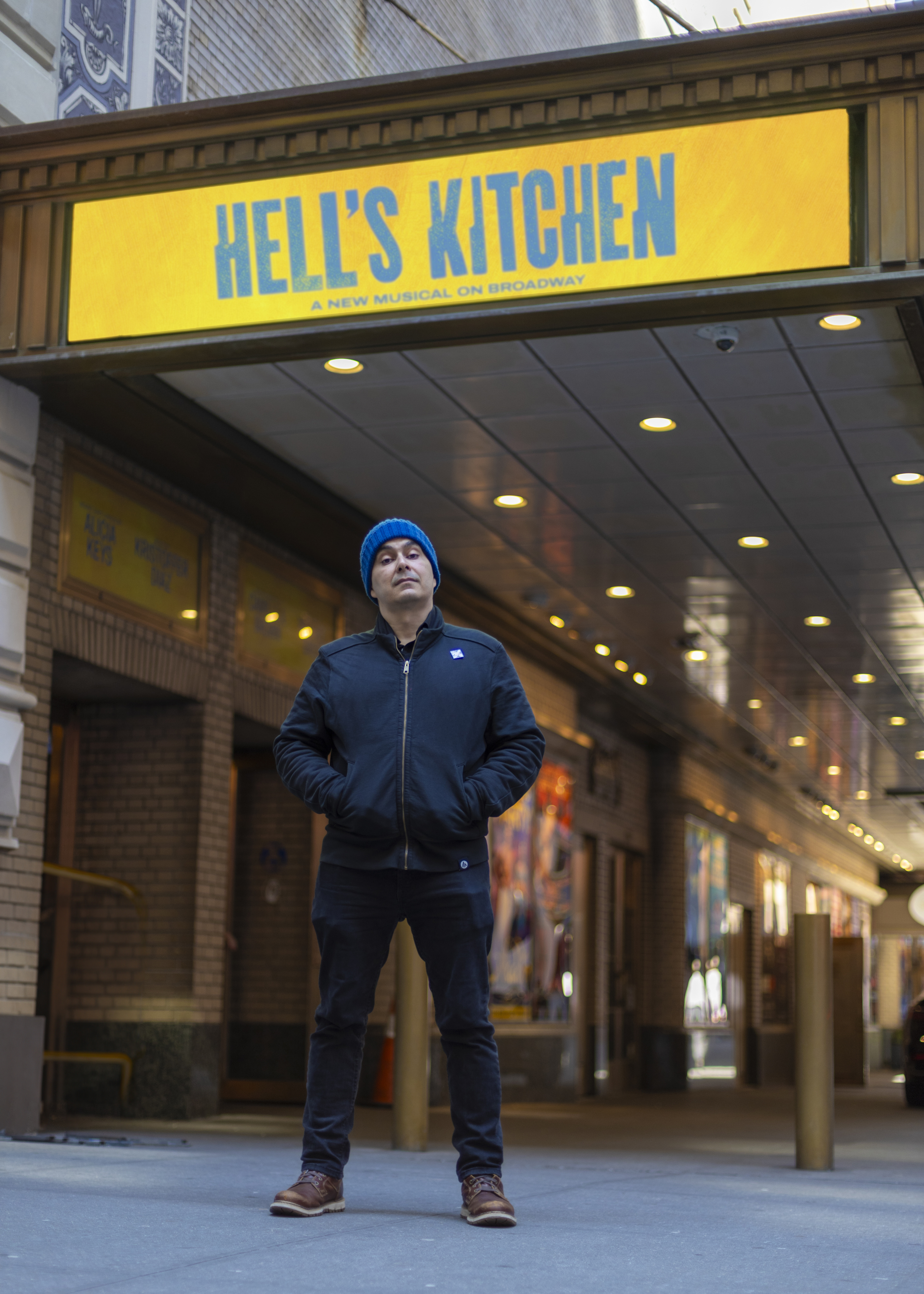
(Photo by Luis Ferrá for Broadway.com)





